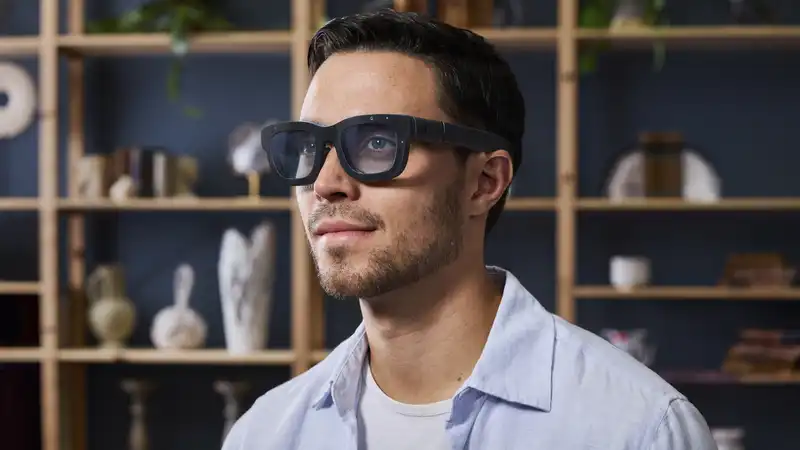When Mark Zuckerberg took the stage at Meta Connect 2024, there was a feeling that the Meta CEO would announce something regarding the rumored Project Orion
But the smart glasses prototype he revealed was still a surprise, pointing to another way we can think about smart glasses and what kind of technology could power them
Promoting the prototype as the most advanced augmented reality glasses ever made, Meta is using Orion as the basis for future commercially available smart glasses
Apparently, it wasn't easy for Meta, and according to Zuckerberg, they have spent over a decade developing it “Nailing the form factor, delivering holographic displays, developing compelling AR experiences, creating a new human-computer interaction (HCI) paradigm, and turning it into one cohesive product is one of the most difficult challenges our industry has ever faced Meta stated in a blog post
Here is what we know so far about Meta Orion and Meta's plans for future AR glasses
The Orion prototype features a surprisingly thick frame, especially compared to the currently available Ray-Ban Meta smart glasses We speculate that Meta will slim these down by the time it ships the product
The glasses can be controlled by voice as well as eye tracking and hand tracking Zuckerberg used the term “neural link” to describe another control method, which is actually an EMG wristband that allows swiping, clicking, and scrolling Also, there are no cables connecting the glasses to anything
According to a CNET preview, the glasses now require an external processor pack that feeds apps and graphics wirelessly to the glasses
The glasses weigh only 100 grams (or 35 ounces)
Perhaps the most interesting feature of the Orion glasses is the lenses, which are not made of glass or plastic
Instead, Meta uses silicon carbide with small protrusions irradiating the lenses This material is more durable, lighter, and features a very high refractive index of the mounted projector
The lens appears a bit darker, sort of like a transition lens in the middle of a transition, but allows the user to see the other person's expression and eyes while talking to them
Supposedly, the viewing angle is 70 degrees, which is quite impressive, especially when compared to the newly announced Meta Quest 3S headset's viewing angle of 96 degrees
Meta did not name any specific software or applications when it announced Orion glasses
However, Zuckerberg did spend some time talking to holographic images of other people In a video demonstration, he showed off a surface-transferred, mixed reality version of Pong in front of people's eyes
Some of the augmented reality interfaces suggested RSS feeds, watching YouTube, listening to music via Spotify, or checking scores via ESPN It is currently unclear if the software is capable of such things
There is no timetable for when Orion-based products will be available Zuckerberg said that Meta is treating the platform as a developer kit while working to lower the price and slim down the design
While Orion may not appear anytime soon, Meta said that one should expect the price of future Orion AR glasses to be close to the price of a high-end cell phone or laptop
For reference, the recently released iPhone 16 Pro Max started at $1,199
As we mentioned, Orion glasses are currently available as a developer kit for Meta and outside partners to create software and hardware for the new mixed reality platform
Whether this will be a set of highly upgraded Ray-Ban Meta Smart Glasses or an entirely new product remains to be seen
Mark Zuckerberg seems committed to the project, and Meta seems to be devoting time and resources to making this a commercially viable product
At any rate, it looks promising










Comments